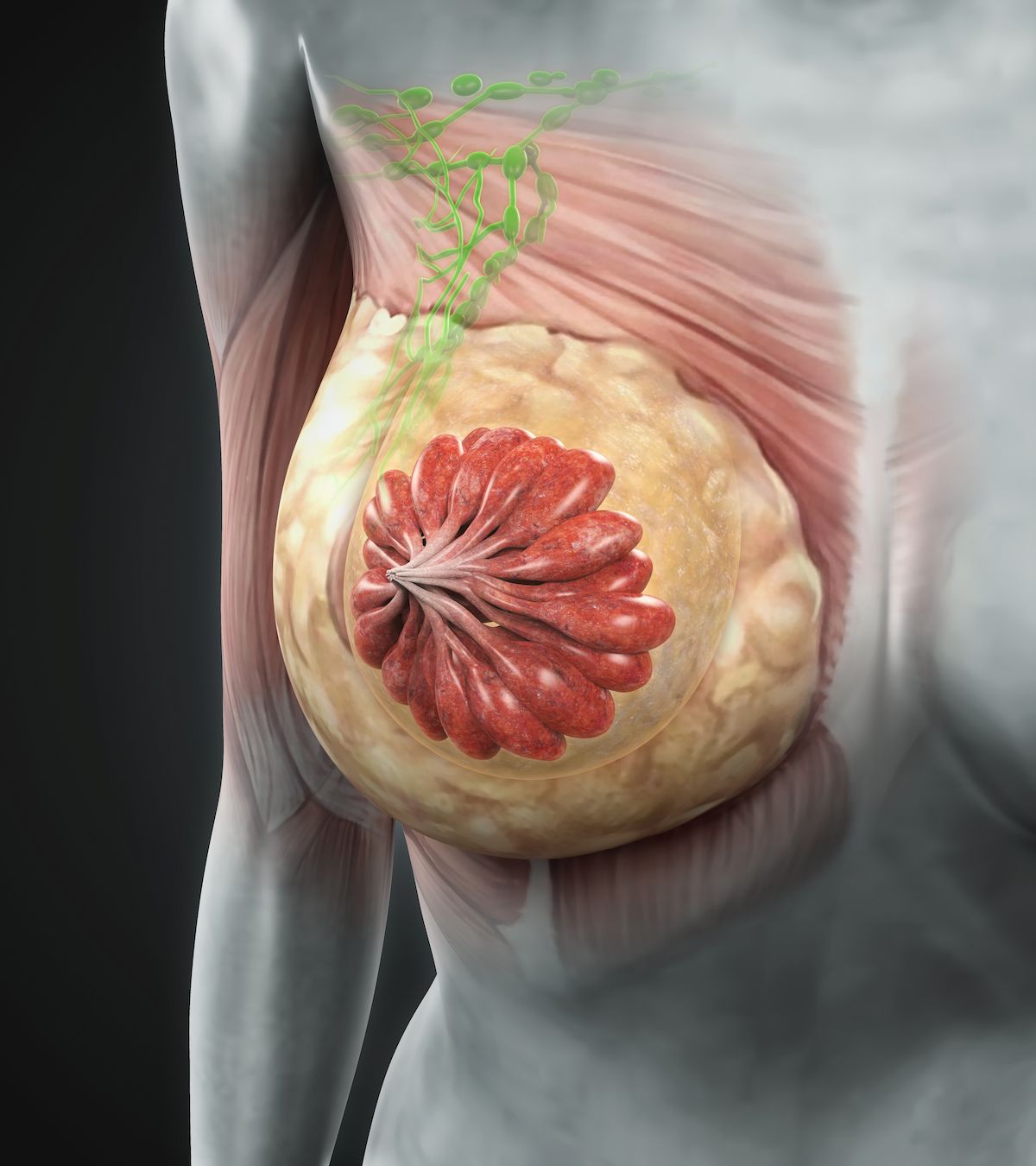FDA Gives Priority Review to Capivasertib Combo in HR+, HER2– Breast Cancer
Data from the phase 3 CAPItello-291 trial support the new drug application for capivasertib plus fulvestrant as a treatment for patients with hormone receptor–positive, HER2-negative breast cancer.
The FDA has set a Prescription Drug User Fee Act date in the fourth quarter of 2023 for their decision on the capivasertib and fulvestrant combination in this indication.

The FDA has granted priority review to a new drug application (NDA) for capivasertib plus fulvestrant (Faslodex) for an adult population with locally advanced or metastatic breast cancer that is hormone receptor (HR)–positive, HER2-negative, and has progressed on or after an endocrine-based regimen, according to a press release from AstraZeneca.1
The regulatory agency has set a Prescription Drug User Fee Act date in the fourth quarter of 2023 for their decision on the combination in this indication.
“This priority review decision underscores the potential of capivasertib to extend the effectiveness of endocrine-based treatment approaches for patients with HR-positive breast cancer who experience tumor progression on, or resistance to these widely used therapies,” Susan Galbraith, executive vice president of Oncology Research and Development at AstraZeneca, said in the press release. “We look forward to working with the FDA to bring this potential first-in-class AKT inhibitor to patients as quickly as possible.”
The NDA is supported by findings from the phase 3 CAPItello-291 trial (NCT04305496), in which investigators assessed the efficacy of capivasertib plus fulvestrant vs placebo plus fulvestrant. In the trial, those receiving the capivasertib-based regimen (n = 355) experienced a median progression-free survival (PFS) of 7.2 months compared with 3.6 months among those in the placebo arm (n = 353).
Patients who were treated with the experimental combination were reported to have a 40% decrease in risk of disease progression or death compared with the control cohort (Hazard ratio [HR], 0.60; 95% CI, 0.51-0.71; P <.001). Additionally, the median PFS in the AKT pathway biomarker-altered population was 7.3 months vs 3.1 months in each respective treatment group (HR, 0.50; 95% CI, 0.38-0.65; P <.001).2
The objective response rate (ORR) was 22.9% in the capivasertib arm vs 12.2% in the placebo arm in the overall population, with corresponding values of 28.8% vs 9.7% in the biomarker-altered cohort, respectively. Investigators noted that early overall survival (OS) data showed promise, although the findings were immature at the time of the analysis.
“These data demonstrate the practice-changing potential of capivasertib as a new treatment option for patients with advanced HR-positive breast cancer,” lead study investigator Nicholas Turner, MD, PhD, professor of Molecular Oncology at The Institute of Cancer Research, London, and The Royal Marsden NHS Foundation Trust in London, said in a press release at the time of the data analysis.
In the double-blind, randomized phase 3 CAPItello-291 trial, all patients received 2 intramuscular injections of fulvestrant at 500 mg on day 1 of weeks 1 and 3 of cycle 1 followed by on day 1 of week 1 in each subsequent cycle. Additionally, patients were randomly assigned to receive 400 mg of capivasertib or matched placebo twice a day on days 1 to 4 every week of the 28-day cycle.
The primary end point of the trial was PFS in the overall population and in a population of patients with tumors harboring qualifying alterations in the AKT pathway. Secondary end points included OS, duration of response, clinical benefit rate, and safety.
Patients 18 years and older with histologically confirmed HR-positive, HER2-negative breast cancer that is metastatic or locally advanced with radiological or objective evidence of progression or recurrence were eligible for enrollment on the trial. Additional inclusion criteria included having an ECOG or World Health Organization performance status of 0 or 1 and measurable disease per RECIST v1.1 criteria.
The capivasertib and fulvestrant regimen did not produce any new safety signals in the CAPItello-291 trial. The most common any-grade adverse effects (AEs) in the overall population included diarrhea (72.4%), nausea (34.6%), fatigue (20.8%), and vomiting (20.6%). Grade 3 or higher AEs included diarrhea (9.3%) and rash (12.1%).
Investigators presented data from the phase 3 CAPItello-291 trial at the 2022 San Antonio Breast Cancer Symposium (SABCS).3
References
- Capivasertib in combination with Faslodex granted priority review in the US for patients with advanced HR-positive breast cancer. News release. AstraZeneca. June 12, 2023. Accessed June 12, 2023. bit.ly/3quQ0Vm
- Capivasertib plus Faslodex reduced the risk of disease progression or death by 40% versus Faslodex in advanced HR-positive breast cancer. News release. AstraZeneca. December 8, 2022. Accessed June 12, 2023. bit.ly/3Cp4w3D
- Turner N, Oliveria M, Howell SJ, et al. Capivasertib and fulvestrant for patients with aromatase inhibitor-resistant hormone receptor-positive/human epidermal growth factor receptor 2-negative advanced breast cancer: results from the phase III CAPItello-291 trial. Presented at the 2022 San Antonio Breast Cancer Symposium; December 6-10, 2022; San Antonio, TX. Abstract GS3-04.